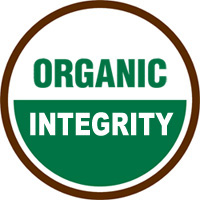21
Aug
Take Action: Insist that the Organic Label Be Regulated on the Basis of Law, Not Whim!
(Beyond Pesticides, August 21, 2017) Consumers of organic food expect a clear set of production standards that are enforced with a rigorous system of inspection and certification. However, the U.S. Department of Agriculture’s (USDA)  National Organic Program (NOP) is currently undermining this central organic principle. During a National Organic Standards Board (NOSB) webinar, NOP Deputy Administrator Miles McEvoy extolled the new “flexibility” of his program in allowing organic certification of operations not permitted by regulations. Although the webinar focused on the program’s allowance of hydroponics, Mr. McEvoy’s comments apply to a wide variety of permitted practices for which USDA has yet to approve standards.
National Organic Program (NOP) is currently undermining this central organic principle. During a National Organic Standards Board (NOSB) webinar, NOP Deputy Administrator Miles McEvoy extolled the new “flexibility” of his program in allowing organic certification of operations not permitted by regulations. Although the webinar focused on the program’s allowance of hydroponics, Mr. McEvoy’s comments apply to a wide variety of permitted practices for which USDA has yet to approve standards.
Click here to take action:
Tell the NOSB, NOP, Secretary of Agriculture, and your Congressional delegation that organic certification must be based on law, not the arbitrary judgment of the Deputy Administrator.
Some NOSB members pointed out the problems with NOP’s arbitrary approach to standards –that the criteria for approving them have not gone through the transparent public review process required by law; that problems of health and environmental impacts and consistency with organic principles may be discovered during the public process; that consumers expect certification to be based on uniform standards enforced consistently; and that once such practices are allowed, it is extremely difficult to prohibit them. Other NOSB members appeared to approve of NOP’s “flexible” (arbitrary) procedures.‘
Click here to take action:
Tell the NOSB, NOP, Secretary of Agriculture, and your Congressional delegation that organic certification must be based on law, not the arbitrary judgment of the Deputy Administrator.
NOSB member Harriet Behar put the matter succinctly: “Without clear, consistent standards, the integrity of the entire label is at risk. It is not acceptable to allow different certifiers to interpret the regulations in lots of different ways. This is the whole reason for the label – consumer trust that stems from uniform standards, enforced in a consistent way, and backed by good process.”
This action allows you to send letters to Deputy Administrator McEvoy and Secretary of Agriculture Sonny Perdue, and your Congressional delegation, and will automatically take you to Regulations.gov, where you can enter a comment for the NOSB. See some suggested language below.
Suggested comment to NOSB:
Dear NOSB members:
During the National Organic Standards Board (NOSB) webinar on August 14, National Organic Program (NOP) Deputy Administrator Miles McEvoy applauded the “flexibility” of his program in allowing organic certification of operations not permitted by regulations. Although the webinar was focused on hydroponics, Mr. McEvoy’s comments applied to a wide variety of production areas where USDA has yet to approve standards. In accordance with your responsibilities under the Organic Foods Production Act (OFPA) to advise the Secretary on implementation of the act, please tell NOP to correct this statement through a policy memo that explains the necessity of developing standards before allowing certification. Regardless of your feelings about the hydroponics issue, please let NOP know that it must follow the rule of law, rather than arbitrarily allowing certification decisions to be made in the hodge-podge of actions that OFPA was designed to avoid.
The Organic Foods Production Act (OFPA) provides requirements for the organic label in law, and regulations. These legal standards are developed through a transparent public process that ensures that they are not arbitrary, but meet the needs of organic producers and consumers. The law and the standards are public documents, which keep certifiers accountable. The purposes of OFPA are stated in §6501:
It is the purpose of this chapter—
(1) to establish national standards governing the marketing of certain agricultural products as organically produced products;
(2) to assure consumers that organically produced products meet a consistent standard; and
(3) to facilitate interstate commerce in fresh and processed food that is organically produced.
To suggest that organic is “flexible” enough to certify products for which there are no standards is a dangerous mistake. This sort of thinking has landed us in the predicament in which we currently find ourselves with hydroponics –where some certifiers certify hydroponic operations as organic, while others do not.
Certifiers interpret and consistently apply standards through the certification process and are held accountable through NOP accreditation. We cannot expect certifiers to uphold the integrity of the label in the absence of clear, applicable standards. The standards must come first, created through a public process, with the certified products following.
NOP must correct this statement through a policy memo that explains the necessity of developing standards before allowing certification.
Sincerely,










